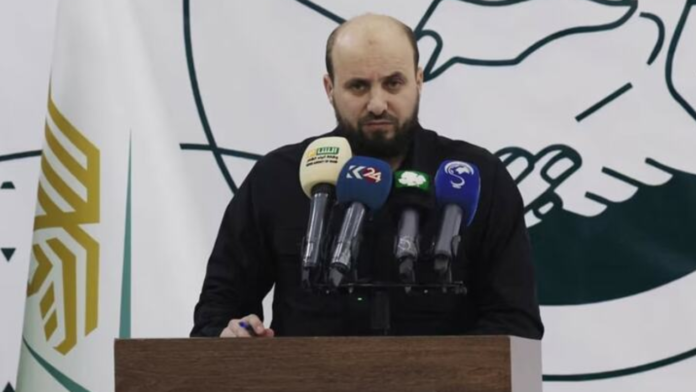Syria’s new interim prime minister said he aimed to bring back millions of Syrian refugees, protect all citizens and provide basic services but acknowledged it would be difficult because the country lacked foreign currency, according to Reuters.
“In the coffers there are only Syrian pounds worth little or nothing. One U.S. dollar buys 35,000 of our coins,” he told Italian newspaper Il Corriere della Sera.
“We have no foreign currency and as for loans and bonds we are still collecting data. So yes, financially we are very bad.”
Bashir ran the rebel-led Salvation Government in a tiny pocket of northwestern Syria, before the 12-day lightning rebel offensive swept into Damascus and toppled veteran autocrat President Bashar al-Assad.
U.S. officials, engaging with rebels led by Hayat Tahrir al-Sham (HTS), urged them not to assume automatic leadership of the country but instead run an inclusive process to form a transitional government.
The new government must “uphold clear commitments to fully respect the rights of minorities, facilitate the flow of humanitarian assistance to all in need, prevent Syria from being used as a base for terrorism or posing a threat to its neighbours,” U.S. Secretary of State Antony Blinken said in a statement.
HTS is a former al Qaeda affiliate that led the anti-Assad revolt and has lately downplayed its jihadist roots.
In a brief address on state television on Tuesday, Bashir said he would lead the interim authority until March 1.
Behind him were two flags – the green, black and white flag flown by opponents of Assad throughout the civil war, and a white flag with the Islamic oath of faith in black writing, typically flown in Syria by Sunni Islamist fighters.
Rebuilding Syria will be a colossal task following a civil war that killed hundreds of thousands of people. Cities have been bombed to ruins, swathes of countryside depopulated and the economy gutted by international sanctions. Millions of refugees still live in camps after one of the biggest displacements of modern times.
With European countries pausing asylum applications from Syrians, some refugees from Turkey and elsewhere began making their way home. Ala Jabeer cried as he prepared to cross from Turkey into Syria with his 10-year-old daughter on Tuesday, 13 years after the war forced him to flee his home. He returns without his wife and three of his children who died in devastating earthquakes that struck the region last year.
“God willing, things will be better than under Assad’s government. We’ve already seen that his oppression is over,” he said.
“The most important reason for me to return is that my mother lives in Latakia. She can take care of my daughter, so I can work,” Jabeer said.
In the capital Damascus, banks reopened for the first time since Assad’s overthrow on Tuesday. Shops also opened again, traffic returned to the roads, cleaners were out sweeping the streets and there were fewer armed men about.



